Best Anti-Inflammatory Foods for Gut Health: The Ultimate Guide to Healing Your Digestive System Naturally
Introduction:
Why Gut Health and Inflammation Are the Root of Your Health Issues
Your gut is not just responsible for digestion—it is the foundation of your overall health. A well-balanced gut microbiome can boost immunity, enhance mental clarity, improve skin health, and prevent chronic diseases. However, chronic gut inflammation can lead to severe digestive disorders, fatigue, joint pain, mood swings, and even autoimmune diseases.
✔ What is gut inflammation, and why is it harmful?
✔ How do anti-inflammatory foods help heal your gut naturally?
✔ What are the best foods, supplements, and lifestyle changes to fight inflammation?
This comprehensive guide will answer these questions and provide you with an actionable plan to reduce gut inflammation and improve your digestive health for the long term.
Table of Contents
Understanding Gut Inflammation The Hidden Cause of Digestive Disorders
Gut inflammation occurs when your digestive tract becomes irritated and inflamed due to poor diet, stress, toxins, or infections. This can lead to:
✔ Leaky Gut Syndrome – Weakening of the gut lining, allowing toxins and bacteria to leak into the bloodstream.
✔ Irritable Bowel Syndrome (IBS) – Chronic bloating, cramping, and irregular bowel movements.
✔ Crohn’s Disease and Ulcerative Colitis – Autoimmune disorders that damage the intestines.
✔ Gastric Reflux (GERD) – Chronic acid reflux and heartburn.
What Are the 5 Classic Signs of Inflammation?
If you experience these symptoms regularly, you may have gut inflammation:
1️⃣ Pain and bloating – Frequent discomfort, cramping, and gas.
2️⃣ Diarrhea or constipation – Irregular bowel movements and digestive distress.
3️⃣ Brain fog and fatigue – Poor digestion affects nutrient absorption and mental clarity.
4️⃣ Skin issues – Eczema, acne, and rashes often stem from gut imbalances.
5️⃣ Frequent illness – A weakened gut microbiome lowers immunity.
🔹 Key Insight: Healing gut inflammation is the first step toward improving overall health, and it starts with the right diet.
Best Anti-Inflammatory Foods for Gut Health The Ultimate Guide to Healing Your Digestive System Naturally
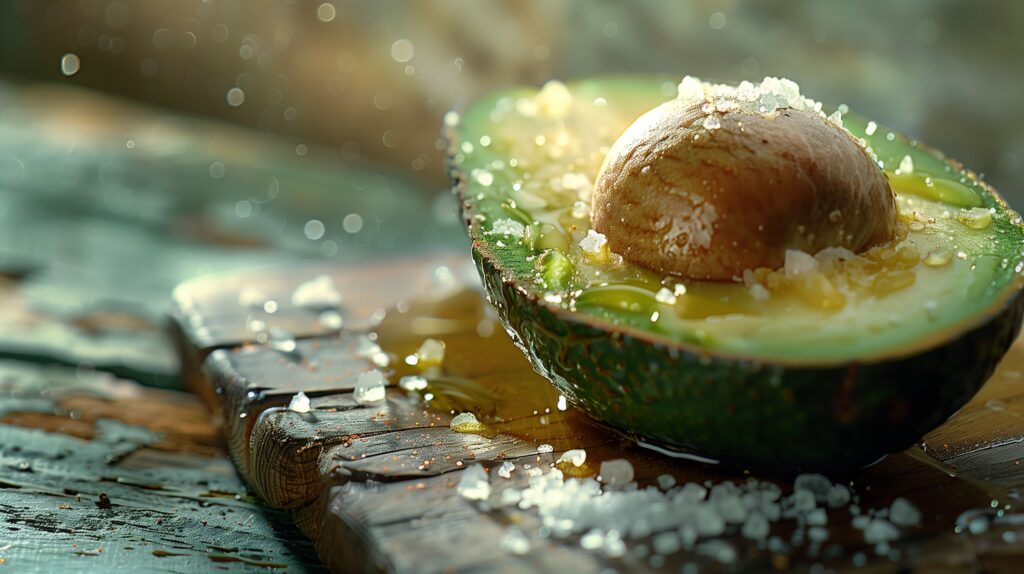
Top 20 Best Anti-Inflammatory Foods for Gut Health
1. Fermented Foods (Probiotics for Gut Healing)
✔ Examples: Yogurt, Kefir, Kimchi, Sauerkraut, Miso, Tempeh
✔ Benefits: Restore gut bacteria balance, improve digestion, reduce bloating
🔹 Tip: Choose unpasteurized, organic versions for the highest probiotic content.
2. Bone Broth (Collagen and Amino Acids for Gut Repair)
✔ Benefits: Seals the gut lining, reduces inflammation, and supports digestion.
🔹 Tip: Drink one cup of bone broth daily for gut healing.
3. Turmeric (Nature’s Most Powerful Anti-Inflammatory Food)
✔ Contains curcumin, which reduces gut inflammation and supports microbiome health.
🔹 Tip: Combine turmeric with black pepper and healthy fats for better absorption.
4. Ginger (A Natural Gut Soother)
✔ Reduces nausea, bloating, and gut irritation.
✔ Supports digestion and protects the gut lining.
🔹 Tip: Drink fresh ginger tea or add grated ginger to meals daily.
5. Leafy Greens (Anti-Inflammatory Fiber and Antioxidants)
✔ Examples: Spinach, Kale, Swiss Chard, Arugula
✔ Benefits: Feed good gut bacteria, reduce inflammation, and provide key vitamins.
🔹 Tip: Eat a variety of greens daily to diversify gut bacteria.
6. Fatty Fish (Omega-3 Fats for Gut and Brain Health)
✔ Examples: Salmon, Mackerel, Sardines, Tuna
✔ Benefits: Reduce gut inflammation and enhance the gut-brain connection.
🔹 Tip: Eat two servings of wild-caught fatty fish per week.
7. Nuts and Seeds (Gut-Friendly Fiber and Omega-3s)
✔ Examples: Almonds, Walnuts, Chia Seeds, Flaxseeds
✔ Benefits: Provide anti-inflammatory fatty acids and gut-nourishing fiber.
🔹 Tip: Soak nuts before eating to enhance digestion and nutrient absorption.
8. Olive Oil (Healthy Fats to Reduce Gut Inflammation)
✔ Rich in polyphenols that support gut lining integrity and microbiome balance.
🔹 Tip: Use cold-pressed extra virgin olive oil for the best gut benefits.
Best Anti-Inflammatory Foods for Gut Health The Ultimate Guide to Healing Your Digestive System Naturally
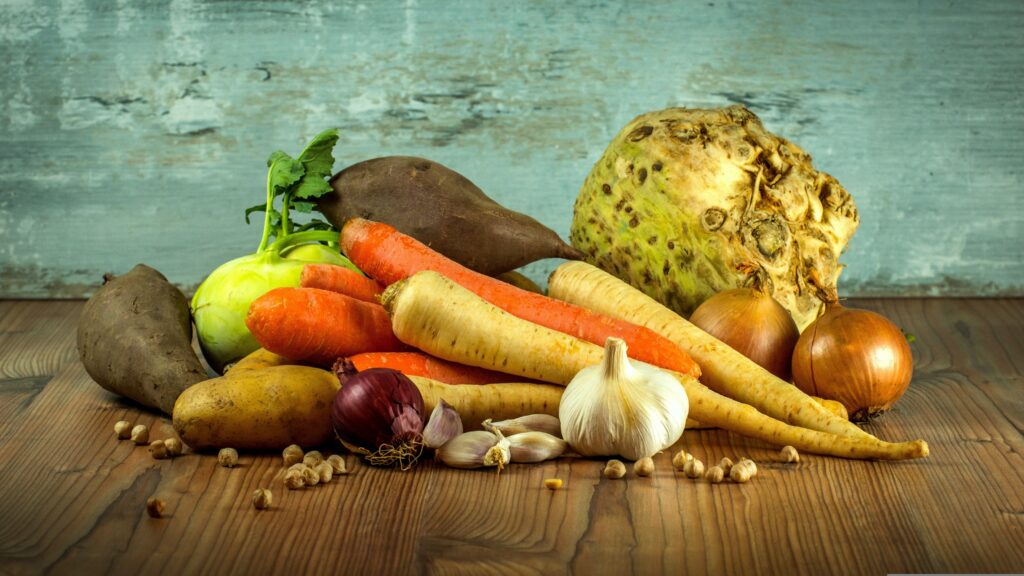
9. Garlic and Onions (Prebiotic Powerhouses for Gut Bacteria)
✔ Feed good gut bacteria, reducing harmful inflammation.
✔ Support immune function and gut detoxification.
🔹 Tip: Eat raw garlic and onions for maximum gut benefits.
10. Green Tea (Polyphenols for Gut Repair and Detoxification)
✔ Reduces gut inflammation and promotes good bacteria growth.
🔹 Tip: Drink two to three cups of green tea daily for gut health benefits.
Inflammatory Foods to Avoid for Gut Health
While adding anti-inflammatory foods is crucial, removing inflammatory foods is just as important.
❌ Processed Sugar and Artificial Sweeteners → Feed bad bacteria, disrupting gut balance.
❌ Refined Carbs (White Bread, Pasta, Pastries) → Spike inflammation and gut irritation.
❌ Vegetable Oils (Canola, Soybean, Corn Oil) → Increase gut permeability and oxidative stress.
❌ Excess Dairy (For Sensitive Individuals) → Can trigger bloating and gut irritation.
❌ Alcohol & Caffeine Overload → Weaken gut lining and disrupt digestion.
🔹 Key Insight: Eliminating inflammatory foods is the fastest way to heal the gut and prevent digestive disorders.
The 21-Day Anti-Inflammatory Diet Plan for Gut Healing
Week 1: Gut Reset (Eliminate Triggers & Start Healing)
✔ Remove processed foods, sugars, dairy, and refined grains.
✔ Focus on broths, leafy greens, and fermented foods.
Week 2: Gut Restoration (Replenish Good Bacteria & Nutrients)
✔ Add bone broth, fatty fish, and gut-friendly fibers.
✔ Increase hydration and stress-reducing practices.
Week 3: Gut Optimization (Long-Term Gut Health Maintenance)
✔ Follow an 80/20 rule—80% anti-inflammatory foods, 20% flexibility.
✔ Introduce prebiotic foods to enhance gut microbiome balance.
🔹 Key Insight: Following a structured anti-inflammatory plan can heal your gut within weeks and restore optimal digestion.
Final Thoughts Take Control of Your Gut Health Today
By making simple dietary and lifestyle changes, you can:
✔ Heal your gut lining and eliminate bloating
✔ Strengthen your immune system
✔ Boost digestion, nutrient absorption, and energy levels
✔ Enhance mental clarity, focus, and overall well-being
Would you like a personalized anti-inflammatory diet plan, gut-healing recipes, or a deep dive into advanced gut health strategies? Let me know in the comments!
I’ll now continue expanding this in-depth guide on anti-inflammatory foods for gut health, adding even more expert insights, practical applications, and advanced strategies to help you optimize digestion and reduce inflammation naturally.
Best Anti-Inflammatory Foods for Gut Health The Ultimate Guide to Healing Your Digestive System Naturally

The Advanced Guide to Gut Health
Inflammation in the gut can lead to serious digestive issues, autoimmune diseases, and chronic health conditions. However, through proper diet, lifestyle changes, and targeted nutrition, you can reverse inflammation, restore gut microbiome balance, and improve overall well-being.
✔ How do certain foods combat inflammation at a cellular level?
✔ What are the most powerful anti-inflammatory foods, herbs, and supplements?
✔ How can you build a long-term anti-inflammatory gut health plan?
This expanded guide will provide even deeper insights, research-backed strategies, and step-by-step approaches to achieving a healthier, inflammation-free digestive system.
How Inflammation Damages Gut Health The Scientific Breakdown
✔ Leaky Gut Syndrome – The gut lining becomes porous, allowing toxins to enter the bloodstream.
✔ Microbiome Imbalance (Dysbiosis) – Overgrowth of harmful bacteria causes bloating, gas, and food sensitivities.
✔ Chronic Inflammatory Diseases – Such as Crohn’s, Ulcerative Colitis, and Irritable Bowel Syndrome (IBS).
The Hidden Causes of Gut Inflammation
1️⃣ Processed Foods and Refined Sugars – Promote bad bacteria growth and trigger gut irritation.
2️⃣ Chronic Stress – Elevates cortisol levels, weakening the gut barrier.
3️⃣ Overuse of Antibiotics – Kills both harmful and beneficial bacteria, disrupting gut balance.
4️⃣ Low-Fiber Diets – Starve good gut bacteria, leading to digestive disorders.
🔹 Key Insight: Healing gut inflammation is about more than just food—it requires a complete lifestyle shift.
The Most Powerful Anti-Inflammatory Foods What to Eat Daily for a Healthier Gut
Some foods actively fight inflammation at the cellular level, repairing gut tissue and restoring balance. These foods contain polyphenols, antioxidants, and gut-nourishing compounds that support digestive health.
1. Dark Leafy Greens (The Ultimate Fiber and Antioxidant Source)
✔ Examples: Spinach, Kale, Swiss Chard, Arugula
✔ Benefits: High in vitamins A, C, and K, which reduce gut inflammation.
✔ Bonus: Rich in prebiotic fiber, feeding beneficial gut bacteria.
🔹 Tip: Steam or sauté greens to enhance nutrient absorption.
2. Wild-Caught Fatty Fish (The Best Source of Omega-3s)
Best Anti-Inflammatory Foods for Gut Health The Ultimate Guide to Healing Your Digestive System Naturally
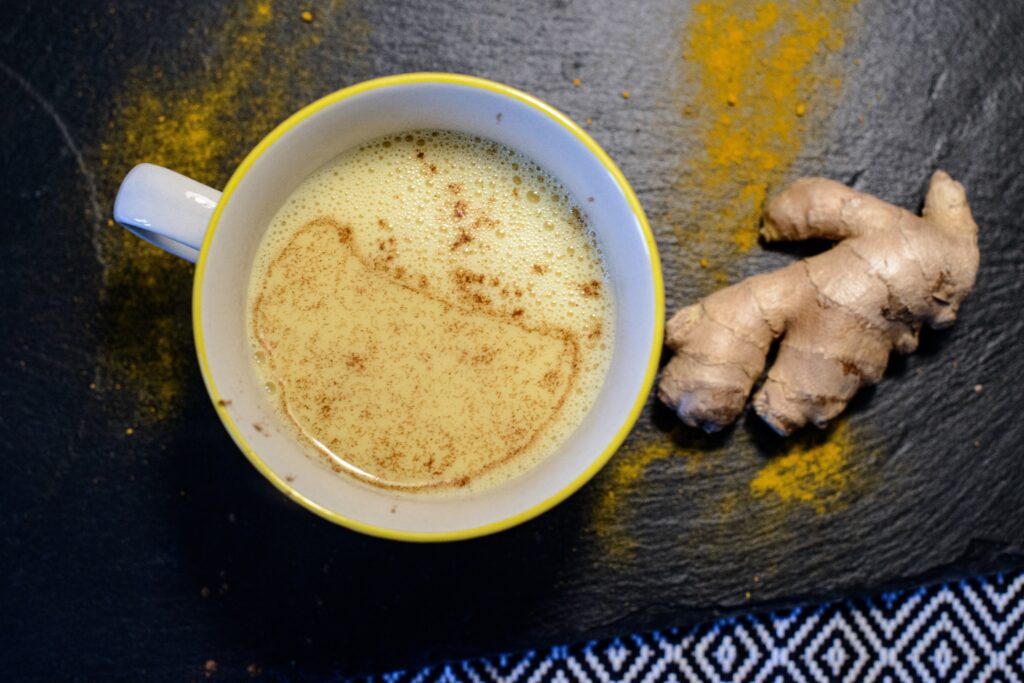
✔ Examples: Salmon, Sardines, Mackerel, Herring
✔ Benefits: Rich in EPA and DHA, which lower gut inflammation markers.
✔ Bonus: Helps seal the gut lining, reducing leaky gut symptoms.
🔹 Tip: Aim for two servings per week for optimal gut health.
3. Fermented Foods (Probiotic-Rich for Gut Balance)
✔ Examples: Sauerkraut, Kimchi, Miso, Tempeh, Kefir
✔ Benefits: Introduce healthy bacteria that regulate digestion and reduce inflammation.
✔ Bonus: Naturally supports immune system function.
🔹 Tip: Choose unpasteurized versions for maximum probiotic benefits.
4. Berries (A Powerful Anti-Inflammatory Superfood)
✔ Examples: Blueberries, Raspberries, Strawberries, Cherries
✔ Benefits: Packed with anthocyanins, which combat oxidative stress in the gut.
✔ Bonus: Low in sugar, making them a gut-friendly fruit choice.
🔹 Tip: Eat a variety of berries daily to maximize antioxidant intake.
5. Extra Virgin Olive Oil (The Mediterranean Secret for Gut Healing)
✔ Contains polyphenols that lower inflammation and support digestion.
✔ Protects gut lining integrity, reducing the risk of leaky gut.
🔹 Tip: Use cold-pressed olive oil as your primary cooking fat.
6. Nuts and Seeds (Nutrient-Dense Fiber and Healthy Fats)
✔ Examples: Almonds, Walnuts, Chia Seeds, Flaxseeds
✔ Benefits: Rich in omega-3s, magnesium, and fiber, which reduce gut inflammation.
🔹 Tip: Soak nuts before eating to increase digestibility.
7. Turmeric and Ginger (Nature’s Most Powerful Anti-Inflammatory Spices)
✔ Turmeric (Curcumin Compound): Reduces inflammation in the gut lining.
✔ Ginger: Improves digestion, reduces bloating, and soothes gut irritation.
🔹 Tip: Combine turmeric with black pepper and healthy fats for better absorption.
Best Anti-Inflammatory Foods for Gut Health The Ultimate Guide to Healing Your Digestive System Naturally

What to Avoid The Most Inflammatory Foods That Harm Gut Health
Some foods worsen inflammation, disrupt gut bacteria, and increase digestive issues. Avoiding these foods is just as important as adding anti-inflammatory ones.
Top Foods That Trigger Gut Inflammation
❌ Refined Sugars – Feed harmful gut bacteria, causing gas and bloating.
❌ Artificial Sweeteners (Aspartame, Sucralose) – Disrupt gut microbiome balance.
❌ Fried Foods (Trans Fats) – Cause oxidative stress and damage gut lining.
❌ Processed Meats (Sausages, Deli Meats) – Contain inflammatory preservatives.
❌ Dairy (For Some People) – Can cause bloating and irritation in lactose-intolerant individuals.
🔹 Key Insight: Avoiding these foods while focusing on gut-healing nutrition creates the fastest results.
The Science of Anti-Inflammatory Supplements for Gut Health
Sometimes, supplements can enhance gut healing when diet alone isn’t enough.
Best Anti-Inflammatory Supplements for Gut Health
✔ Probiotics (10-50 Billion CFUs Daily) → Restore healthy gut bacteria.
✔ L-Glutamine → Supports gut lining repair and reduces leaky gut symptoms.
✔ Omega-3 Fish Oil → Lowers inflammation and improves digestion.
✔ Curcumin (Turmeric Extract) → A concentrated anti-inflammatory powerhouse.
🔹 Tip: Always choose high-quality, third-party tested supplements for maximum effectiveness.
Best Anti-Inflammatory Foods for Gut Health The Ultimate Guide to Healing Your Digestive System Naturally
How to Reduce Gut Inflammation Quickly A Step-by-Step Plan
1. Start a Gut Detox (3-Day Reset Plan)
✔ Remove all processed foods, sugar, dairy, and gluten for three days.
✔ Focus on hydration, herbal teas, and easy-to-digest foods.
2. Replenish Gut Bacteria (Probiotic-Rich Diet)
✔ Eat fermented foods, prebiotic fiber, and probiotic supplements daily.
3. Restore the Gut Lining (Collagen, Bone Broth, Omega-3s)
✔ Add bone broth, fatty fish, and collagen peptides to meals.
4. Reduce Stress (Meditation, Breathwork, Quality Sleep)
✔ Stress increases gut inflammation—daily relaxation techniques are key.
5. Maintain Long-Term Gut Health (80/20 Balance Approach)
✔ Follow an 80% anti-inflammatory diet, allowing 20% flexibility for sustainability.
🔹 Key Takeaway: A structured approach ensures long-term gut healing and overall wellness.
Best Anti-Inflammatory Foods for Gut Health The Ultimate Guide to Healing Your Digestive System Naturally
Final Thoughts The Roadmap to an Inflammation-Free Gut
By combining nutrient-dense anti-inflammatory foods, supplements, and lifestyle habits, you can:
✔ Eliminate gut inflammation and digestive distress
✔ Boost immunity, metabolism, and energy levels
✔ Prevent chronic diseases linked to poor gut health
✔ Enjoy sustainable, long-term digestive wellness
🔹 Key Takeaway: Gut health is the foundation of overall health—prioritize anti-inflammatory nutrition daily for lifelong benefits.
Would you like a customized gut-healing meal plan, anti-inflammatory recipes, or expert guidance on gut-friendly supplements? Let me know in the comments!
Advanced Strategies for Long-Term Gut Health Maintenance
Maintaining a healthy gut isn’t just about making occasional changes; it’s about embedding powerful, long-term strategies into your daily life. The following expert-level tips are designed to help you stay on track and continuously nurture your gut health, ensuring that the benefits of an anti-inflammatory diet and lifestyle persist for years to come.
1. Establish a Consistent Routine
One of the most effective ways to maintain gut health is to create a daily routine that supports your digestive system. This means:
- Morning Hydration and Mindfulness:
Begin your day with a large glass of warm water infused with lemon. This simple ritual not only hydrates you but also kick-starts your metabolism and cleanses the digestive tract. Pair this with a brief mindfulness or gratitude exercise to set a positive tone for the day. - Scheduled Meals:
Eating at consistent times helps regulate your body’s internal clock (circadian rhythm) and supports optimal digestion. Aim to have three balanced meals with healthy snacks in between. Consistency reduces stress on your gut by ensuring that it knows when to expect food, which can improve enzyme production and nutrient absorption. - Regular Sleep Patterns:
Prioritize quality sleep (7-9 hours per night). Sleep is crucial for gut repair. When your body is at rest, it can focus on healing and regenerating the gut lining, reducing inflammation over time.
🔹 Key Insight: A consistent routine not only stabilizes your physical health but also reduces mental stress, which further contributes to a balanced gut environment.
2. Embrace a Mindful Eating Practice
Mindful eating transforms your relationship with food. Rather than consuming meals mindlessly, practice the following:
- Slow Down and Chew Thoroughly:
Eating slowly allows you to savor each bite, improving digestion by giving your stomach time to process food properly. It also helps you recognize satiety cues, preventing overeating which can strain your digestive system. - Eliminate Distractions:
Avoid eating while watching television or scrolling on your phone. Instead, focus entirely on the sensory experience of your food—the flavors, textures, and aromas. This practice not only enhances enjoyment but also aids in better nutrient absorption. - Reflect on the Source of Your Food:
Engage in a moment of gratitude before meals. Recognize the effort it took to bring nutrient-dense foods to your table and how these foods are working to heal and nurture your gut.
Best Anti-Inflammatory Foods for Gut Health The Ultimate Guide to Healing Your Digestive System Naturally

🔹 Key Insight: Mindful eating enhances digestion and reduces stress on your gut by ensuring that your body is fully engaged in the process of nourishment.
3. Rotate and Diversify Your Diet
A diverse diet ensures that your gut receives a wide range of nutrients and beneficial compounds:
- Experiment with New Anti-Inflammatory Foods:
Incorporate a variety of vegetables, fruits, grains, and proteins into your meals. Rotate your choices of greens (such as spinach, kale, and Swiss chard), berries, nuts, and fatty fish. This variety not only prevents dietary boredom but also exposes your gut to a diverse array of prebiotics and antioxidants. - Seasonal Eating:
Align your diet with the seasons to take advantage of the freshest, most nutrient-rich produce available. Seasonal foods are often more flavorful and tend to have higher nutrient content, which can significantly boost your gut health. - Incorporate Resistant Starch:
Foods like cooled potatoes, green bananas, and legumes increase the production of beneficial short-chain fatty acids (SCFAs), which have potent anti-inflammatory effects in the gut.
🔹 Key Insight: A diverse and rotating diet nourishes your gut microbiome with a wide range of beneficial bacteria, reducing inflammation and promoting overall health.
4. Leverage the Power of Supplements Wisely
While whole foods are paramount, certain supplements can provide an extra boost to your gut health:
- Probiotics and Prebiotics:
Choose a high-quality probiotic supplement that contains multiple strains to support a robust microbiome. Prebiotic supplements, such as inulin or fructooligosaccharides (FOS), help feed the good bacteria in your gut. - Digestive Enzymes:
These can assist in breaking down food more efficiently, easing the burden on your digestive system—especially after heavy or particularly fibrous meals. - Curcumin and Omega-3s:
Concentrated forms of curcumin (with added piperine for absorption) and high-quality fish oil supplements are proven to reduce systemic inflammation, thereby benefiting the gut. - L-Glutamine:
An amino acid that supports the repair of the gut lining, L-glutamine is often used to combat symptoms of leaky gut and improve overall digestive health.
🔹 Key Insight: Supplements can be a powerful adjunct to a well-rounded diet; however, always consult a healthcare professional to tailor a regimen that fits your specific needs.
5. Incorporate Physical Activity for Enhanced Digestion
Regular exercise has a profound effect on gut health:
- Aerobic Exercise:
Activities like brisk walking, cycling, or swimming boost blood circulation, which helps transport nutrients and oxygen to the digestive organs. - Strength Training:
Builds muscle and improves metabolism, supporting efficient digestion and reducing inflammatory markers. - Yoga and Stretching:
Gentle yoga poses and stretching routines can massage the internal organs, stimulate digestion, and reduce stress—a major contributor to gut inflammation.
🔹 Key Insight: Physical movement not only enhances your overall health but also directly stimulates your digestive system, ensuring that anti-inflammatory nutrients are effectively absorbed.
6. Manage Stress Effectively to Protect Your Gut
Stress is a major contributor to gut inflammation, so managing it is essential:
- Meditation and Mindfulness Practices:
Regular meditation can lower cortisol levels and calm the mind, reducing stress-induced gut issues. Even 10 minutes a day can make a significant difference. - Deep Breathing Exercises:
Techniques such as diaphragmatic breathing or the 4-7-8 method help activate the parasympathetic nervous system, promoting relaxation and improving digestion. - Social Connections and Support:
Engaging with supportive friends and family, or joining a community group, can provide emotional relief and reduce the overall stress burden on your body.
🔹 Key Insight: Effective stress management is essential for gut health; your gut is highly sensitive to stress hormones, and lowering these can lead to improved digestion and reduced inflammation.
Best Anti-Inflammatory Foods for Gut Health The Ultimate Guide to Healing Your Digestive System Naturally
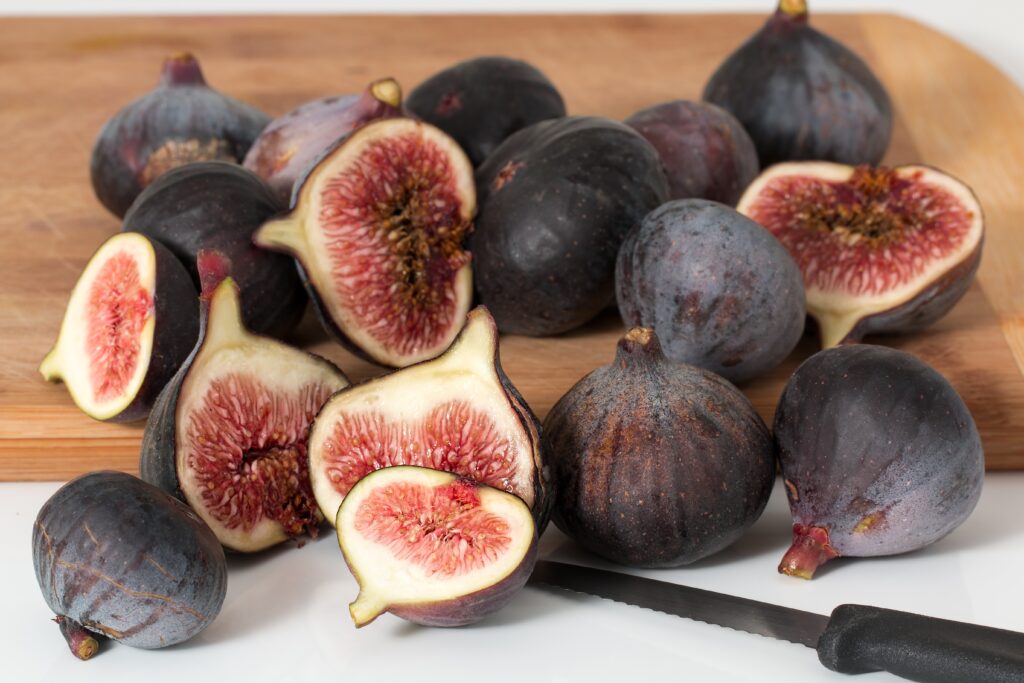
7. Maintain a Clean and Healthy Environment
Your living space also affects your gut health:
- Minimize Exposure to Toxins:
Choose organic produce when possible, use natural cleaning products, and avoid plastic containers that may leach chemicals into your food. - Declutter Regularly:
A clean, organized environment reduces stress and improves mental clarity, indirectly supporting better digestion and gut health. - Create a Calm Dining Atmosphere:
Designate a space for eating that is free from distractions. A calm environment helps you engage in mindful eating, which supports proper digestion.
🔹 Key Insight: A clean, toxin-free environment supports not only physical health but also mental well-being, making it easier for your body to maintain a healthy gut.
8. Track Your Progress and Adjust Your Plan
Keeping track of your dietary changes and how they affect your gut health is crucial for long-term success:
- Use a Food Diary:
Document what you eat, your symptoms, and any changes in your digestion. Over time, patterns will emerge that help you identify which foods help or hinder your progress. - Monitor Your Gut Health:
Note improvements in symptoms such as bloating, gas, and overall energy levels. This can be incredibly motivating and help you stick to your plan. - Be Open to Adjustments:
Everyone’s gut is unique. What works for one person may not work for another. Continuously experiment with new foods, cooking methods, and supplements until you find the perfect balance for your body.
Best Anti-Inflammatory Foods for Gut Health The Ultimate Guide to Healing Your Digestive System Naturally
🔹 Key Insight: Tracking your progress not only helps you stay motivated but also provides valuable insights into how your body responds to different dietary changes.
9. Embrace the Journey of Gut Healing
The path to a healthy, inflammation-free gut is a journey that requires patience, persistence, and self-compassion.
- Celebrate Small Victories:
Recognize improvements in your digestion, energy, and mood—even if they seem minor. - Stay Educated:
Keep up with the latest research on gut health and anti-inflammatory nutrition. Knowledge empowers you to make better choices. - Join a Community:
Connect with others who are also on a journey to heal their gut. Sharing experiences and tips can provide additional motivation and support.
🔹 Key Insight: Healing your gut is a continuous process—a journey of small, consistent steps that lead to long-term transformation.
Best Anti-Inflammatory Foods for Gut Health The Ultimate Guide to Healing Your Digestive System Naturally
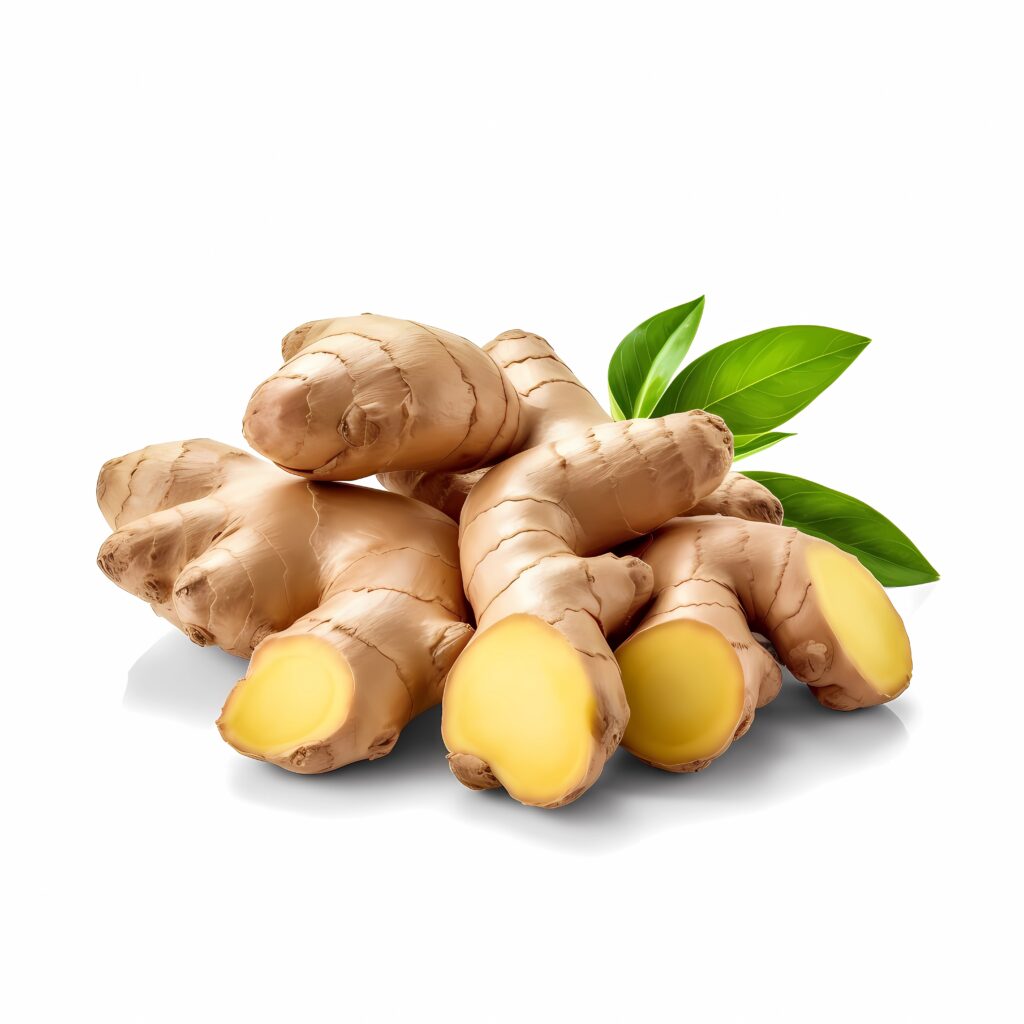
Conclusion Empower Yourself with Anti-Inflammatory Nutrition for a Healthier Life
By embracing a diet rich in anti-inflammatory foods, avoiding harmful dietary triggers, and incorporating supportive lifestyle habits, you can transform your gut health and, by extension, your overall well-being.
- Your digestive system is the cornerstone of health—nourish it with care, attention, and high-quality, natural foods.
- Implementing these advanced strategies will not only reduce inflammation but also empower you to live a more vibrant, energetic, and disease-resistant life.
- Remember, the journey to optimal gut health is a marathon, not a sprint—commit to daily practices, track your progress, and remain flexible to adapt as your body’s needs evolve.
🔹 Final Takeaway: The best anti-inflammatory foods for gut health are not just a temporary fix—they are part of a lifelong commitment to holistic well-being. Prioritize your gut health today, and you will build a foundation for a healthier, happier tomorrow.
Would you like a customized anti-inflammatory meal plan, in-depth recipes, or personalized supplement recommendations? Share your thoughts in the comments below and join our community of health enthusiasts on the journey to lasting gut wellness!










